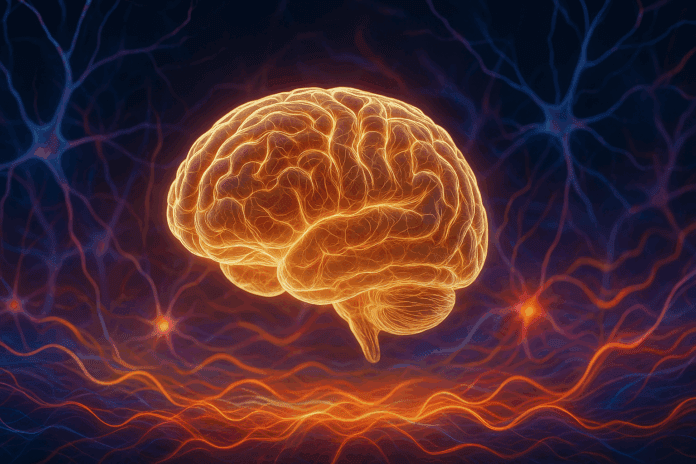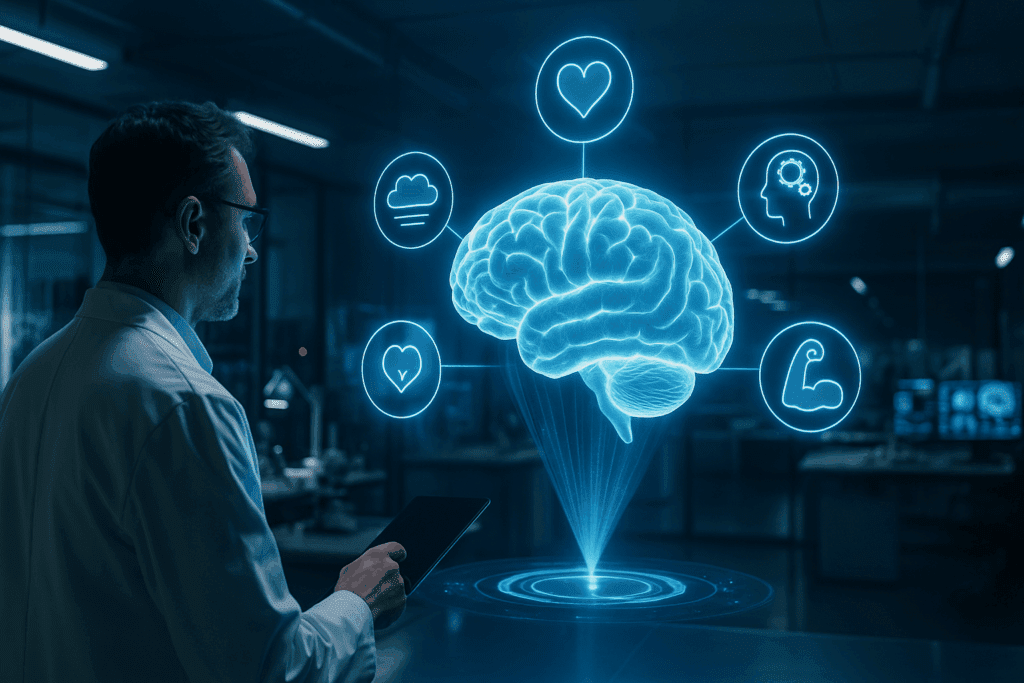
Understanding the Foundations: Why Studying the Brain Matters
> Bridging Neuroscience and Psychology
The human brain, a remarkably intricate organ responsible for thought, emotion, behavior, and memory, lies at the core of mental health. Studying the brain provides more than just anatomical or neurological knowledge—it serves as a gateway to understanding the psychological roots of human experience. At the intersection of neuroscience and psychology lies the emerging field of brain-based mental health science, a discipline that provides critical insight into how structural and functional changes in the brain relate to mood regulation, resilience, and emotional well-being. Through advanced imaging techniques, neuropsychological assessments, and cognitive modeling, researchers are uncovering the nuanced ways in which brain processes contribute to mental health outcomes. This deep focus on studying the brain equips professionals with the tools to detect early markers of psychological disorders, develop targeted interventions, and personalize treatments based on individual neurocognitive profiles.
You may also like: Boost Brain Power Naturally: Evidence-Based Cognitive Training Activities and Memory Exercises That Support Long-Term Mental Health
> The Psychological Impact of Brain Research
Equally important is the study of the brain psychology—the systematic investigation of how neural mechanisms shape psychological behavior and experiences. From a research perspective, this area illuminates the biological foundations of cognition, emotion, and mental disorders. For clinicians and therapists, insights drawn from the study of the brain psychology inform best practices in therapy, guiding interventions such as cognitive-behavioral therapy (CBT), neurofeedback, and even psychopharmacology. What was once understood purely in behavioral terms now benefits from a dual lens of neurobiology and cognitive science, allowing for a richer, more holistic approach to healing and well-being. By studying the brain, we develop a deeper appreciation of how trauma, stress, and lifestyle factors imprint themselves onto neural circuits, ultimately influencing how we think, feel, and behave.
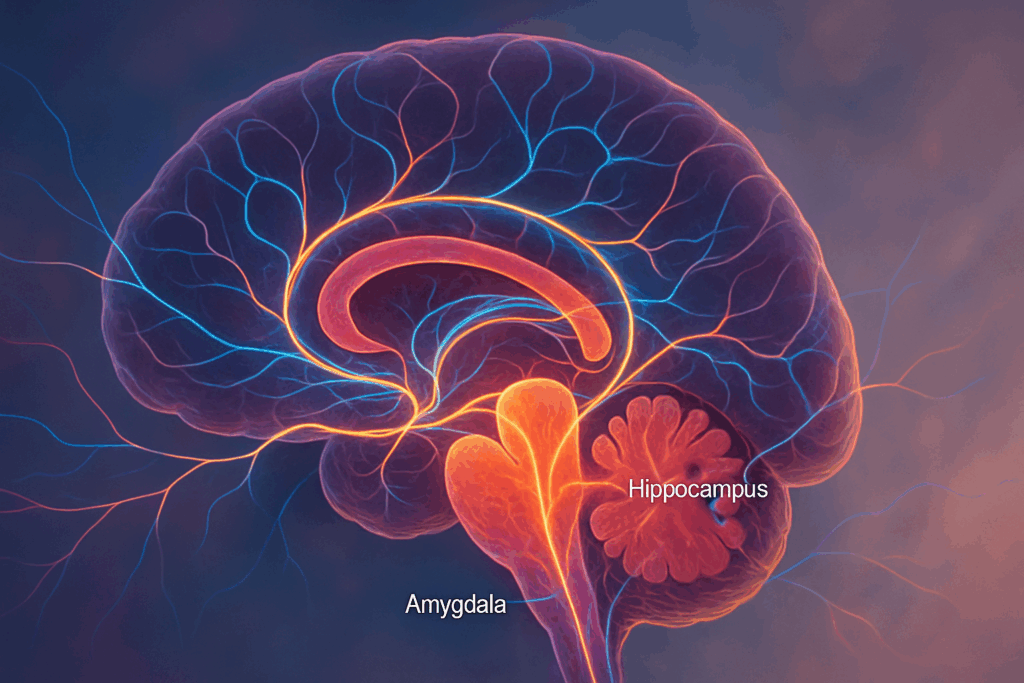
From Neural Pathways to Mental Wellness: The Brain’s Role in Emotional Regulation
> Mapping the Brain’s Emotional Circuitry
One of the most profound connections between brain science and mental health lies in our understanding of emotional regulation. Emotional regulation—the capacity to manage and respond to emotional experiences in adaptive ways—is essential to psychological resilience and day-to-day functioning. Neuroscientific studies have identified several key brain regions involved in this process, most notably the prefrontal cortex, amygdala, hippocampus, and anterior cingulate cortex. Each of these regions plays a vital role: the prefrontal cortex is involved in executive control and planning, the amygdala detects threats and processes emotions like fear, and the hippocampus helps contextualize memories, particularly those tied to emotional experiences. Understanding these networks enables mental health professionals to tailor interventions that enhance emotional regulation and reduce the impact of anxiety, depression, and trauma-related disorders.
> Emotional Regulation Through Cognitive Rewiring
Moreover, the study of the brain’s psychology offers powerful insights into how our thoughts and emotions are neurologically interlinked. Cognitive distortions, such as catastrophizing or all-or-nothing thinking, can be traced to dysregulation in these circuits. For instance, when the amygdala becomes hyperactive in individuals with post-traumatic stress disorder (PTSD), it can overpower the rational functions of the prefrontal cortex, leading to heightened reactivity and emotional volatility. Through the study of the brain’s psychology, we gain a more precise framework to understand these dynamics and correct maladaptive patterns using evidence-based strategies. Cognitive-behavioral therapies often work by reactivating healthier neural pathways, thus promoting emotional resilience. As we deepen our efforts in studying the brain, the emerging therapies become increasingly refined, allowing us to not only treat emotional dysregulation but also to fortify mental wellness proactively.
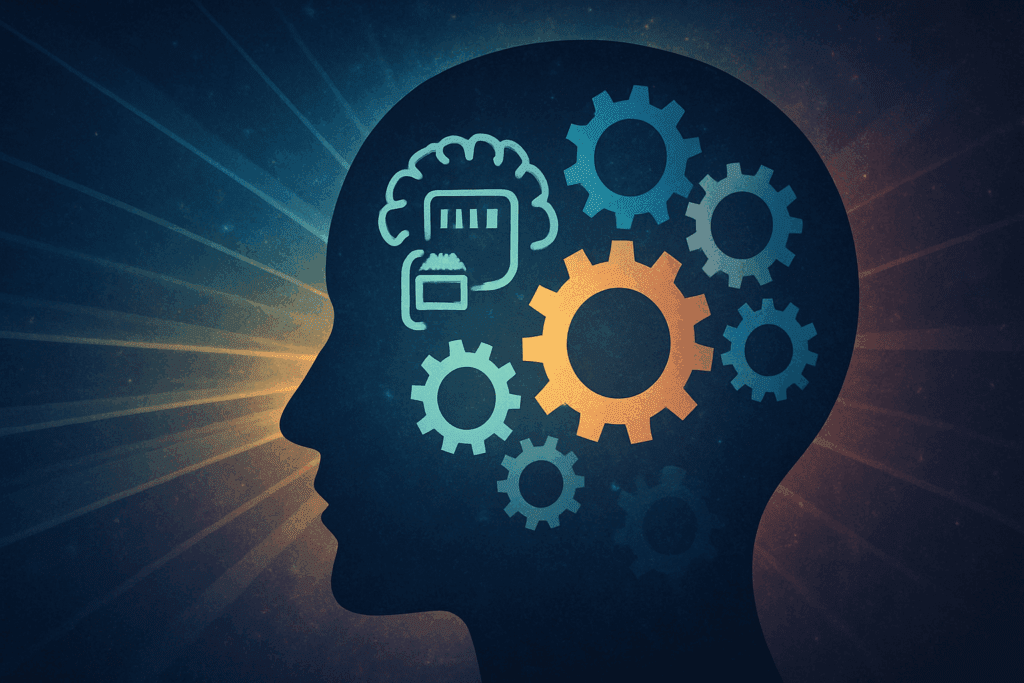
Cognitive Function and Mental Health: Unlocking the Brain’s Potential
> Cognitive Health as a Mental Health Indicator
Another critical dimension where studying the brain enhances mental health is in its contribution to cognitive function. Cognitive health encompasses several domains, including attention, memory, processing speed, decision-making, and executive functioning. These capabilities are not only essential for academic and professional success but are also strongly tied to overall psychological well-being. Impairments in these areas can signal underlying mental health conditions such as ADHD, depression, or early cognitive decline. The study of the brain psychology helps distinguish between cognitive changes due to neurodevelopmental factors, psychiatric disorders, or lifestyle-related contributors like poor sleep or chronic stress. In this way, brain-based research acts as a diagnostic compass, providing context and clarity when symptoms present ambiguously.
> Strengthening the Brain Through Cognitive Interventions
Neuroscience has shown that cognitive impairments often result from functional or structural alterations in the brain’s cortical and subcortical networks. For instance, reduced activity in the dorsolateral prefrontal cortex has been linked to difficulties with working memory and problem-solving, while disruptions in the default mode network are associated with rumination and mood instability. Such findings emphasize the relevance of studying the brain as a foundational tool for evaluating and improving mental health. Cognitive rehabilitation strategies, mindfulness training, and neuroplasticity-based therapies are now used to strengthen these networks, resulting in improved focus, clarity, and emotional balance. The study of the brain psychology reinforces the idea that cognitive and emotional functions are deeply intertwined—and by enhancing one, we often uplift the other. This integrative perspective marks a shift toward a more comprehensive and empowered model of mental health.
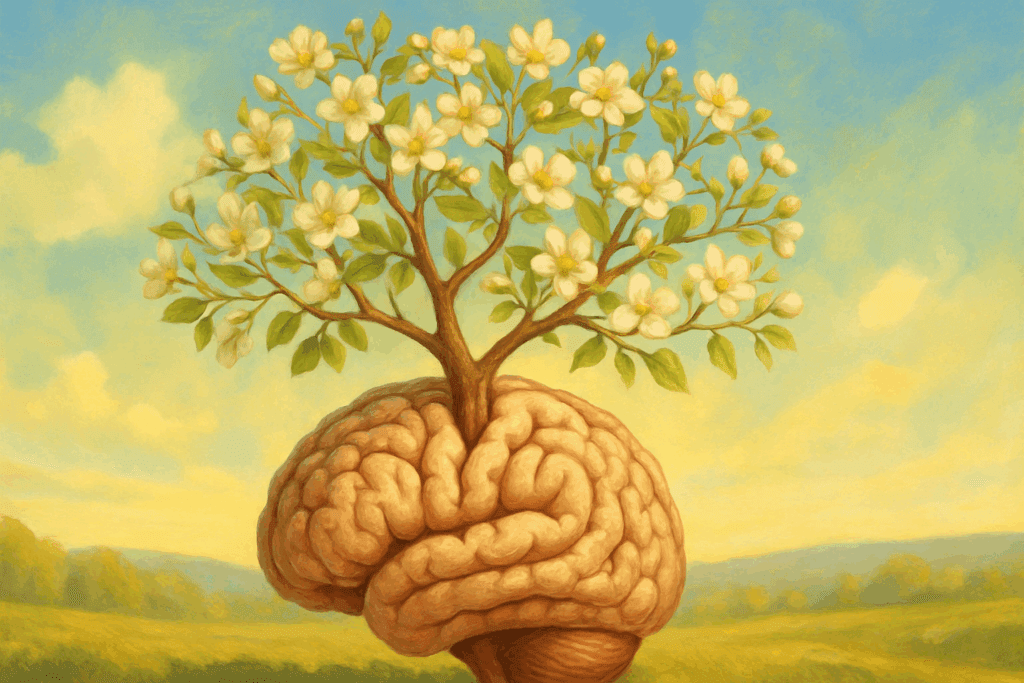
How Brain Plasticity Shapes Resilience and Recovery
> Lifelong Brain Growth and Mental Health
Perhaps one of the most hopeful discoveries in modern neuroscience is the concept of neuroplasticity—the brain’s lifelong capacity to change and adapt in response to experience. Historically, it was believed that brain development ended in early adulthood. However, the study of brain psychology has thoroughly debunked this notion, demonstrating that new neural connections can form at any age, particularly when individuals engage in learning, therapy, or positive behavioral change. This revelation has enormous implications for mental health. It means that recovery from trauma, depression, or anxiety is not only possible but can be facilitated through targeted interventions that reshape the brain’s architecture over time.
> Tools That Foster Neural Adaptability
Studying the brain through neuroplasticity reveals specific techniques that promote healing. Practices like cognitive-behavioral therapy, mindfulness meditation, physical exercise, and even musical training have all been shown to increase synaptic density and enhance neural connectivity in key areas of the brain. These changes not only alleviate symptoms but also build resilience—the brain’s ability to withstand stress and bounce back from adversity. The study of the brain psychology provides empirical support for these interventions, showing how behavioral changes correlate with shifts in brain structure and function. When therapy is rooted in an understanding of how the brain adapts, it becomes more precise, measurable, and effective. This fusion of psychology and neuroscience encourages a proactive stance toward mental health, highlighting the power of deliberate change and personal agency.
Mental Health Disorders Through the Neuroscientific Lens
> Biological Foundations of Mental Illness
The study of psychiatric conditions has been profoundly enriched by studying the brain. Conditions such as depression, anxiety, schizophrenia, bipolar disorder, and obsessive-compulsive disorder are no longer viewed solely through the lens of behavior or symptomology. Instead, brain imaging and neurochemical analyses now reveal patterns of activity, connectivity, and neurotransmitter imbalance that correspond to these disorders. This has led to the development of biomarker-based diagnostics, enabling earlier and more accurate detection of mental health conditions. It has also ushered in the era of personalized medicine, where treatment plans are designed based on an individual’s unique neurobiological profile.
> Psychological Dynamics in Neurological Context
For example, functional MRI studies have shown that people with depression often exhibit decreased activity in the prefrontal cortex and overactivation in the amygdala, which may explain the cycle of negative thinking and emotional hypersensitivity that characterizes the condition. Meanwhile, disruptions in dopamine pathways are central to the cognitive and motivational challenges faced by individuals with schizophrenia. The study of the brain psychology deepens this understanding by examining how these biological patterns interact with environmental triggers, learned behaviors, and psychological coping mechanisms. In doing so, it dismantles the outdated dichotomy between “mind” and “brain,” showing that mental health disorders are both biologically grounded and experientially shaped. This dual perspective fosters empathy, reduces stigma, and enhances clinical effectiveness.
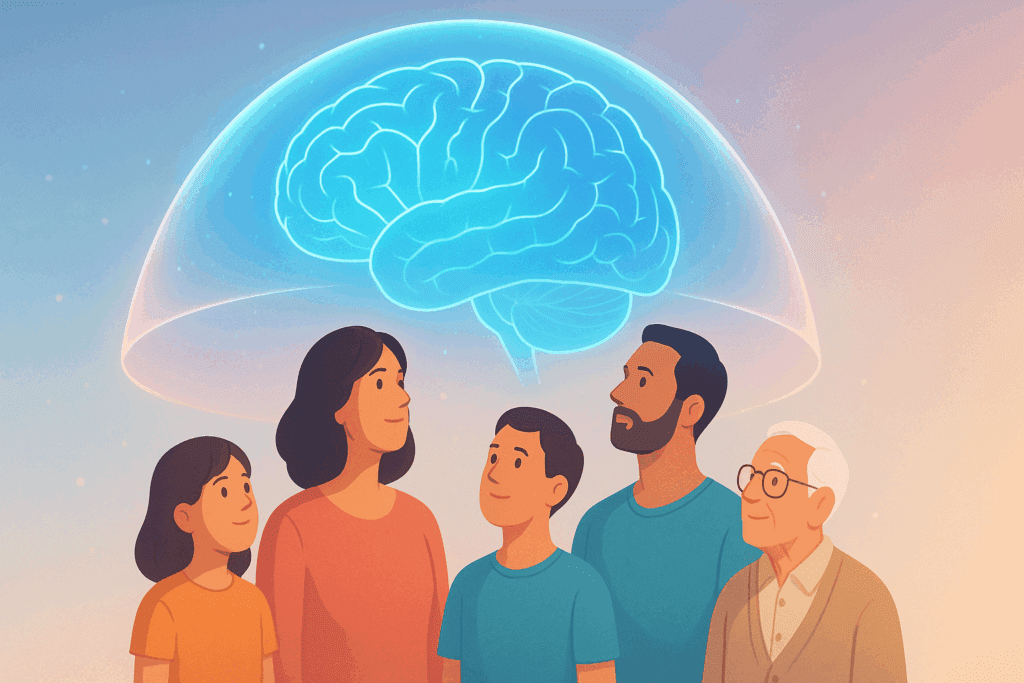
The Promise of Preventive Mental Health Through Brain Science
> A Shift Toward Proactive Well-Being
An especially exciting frontier in studying the brain is its potential to inform preventive mental health care. Traditionally, mental health services have been reactive—responding to symptoms once they become disruptive or debilitating. However, as neuroscience advances, we are now better positioned to predict risk, identify early warning signs, and implement strategies that prevent psychological decline before it manifests. The study of the brain psychology, plays a vital role in this transformation. By identifying neurodevelopmental trajectories and cognitive patterns associated with mental health vulnerability, professionals can intervene proactively with lifestyle coaching, resilience training, or therapeutic support.
> Integrating Brain Science into Everyday Life
Tools like electroencephalograms (EEGs), neuropsychological testing, and genetic screening can detect subtle irregularities that may signal emerging challenges in children, adolescents, or adults. These insights empower educators, parents, and healthcare providers to take early, targeted action. Moreover, public health initiatives rooted in brain science—such as school-based mindfulness programs or workplace cognitive wellness plans—can promote widespread mental resilience. The more we integrate the study of the brain into educational, occupational, and community contexts, the more we normalize mental health maintenance as an everyday practice rather than a crisis response. This paradigm shift has the potential to radically reshape how society approaches mental well-being.
Frequently Asked Questions (FAQ): How Studying the Brain Enhances Mental Health
1. How does studying the brain provide deeper insights into personality development?
Understanding personality through the lens of brain science offers a compelling frontier for psychological research. While traits like extraversion or conscientiousness have traditionally been examined behaviorally, studying the brain allows us to trace these tendencies back to functional networks such as the default mode network and the salience network. Recent findings show that individual differences in personality are linked to structural and functional brain patterns that can be observed using neuroimaging. Additionally, the study of the brain psychology emphasizes how experiences reshape personality over time through neuroplastic changes. This has meaningful implications for therapy, suggesting that personality is not fixed, but modifiable when interventions target the brain’s adaptive systems. Studying the brain in this context not only clarifies why people think and behave differently, but also opens doors for personalized treatment approaches based on an individual’s neural signature. This intersection of personality and neuroscience deepens our understanding of identity and self-regulation.
2. In what ways can the study of the brain psychology help address chronic stress?
The study of the brain psychology has contributed significantly to our understanding of chronic stress and its long-term impact on mental health. By examining the biological stress response, researchers have identified how persistent cortisol elevation alters brain structures like the hippocampus and prefrontal cortex. Studying the brain enables early detection of stress-related neural patterns that precede cognitive and emotional impairment. More importantly, these insights help inform interventions such as cognitive reappraisal and mindfulness training, which counteract stress at the neurobiological level. The study of the brain psychology reveals how these techniques rewire the brain by dampening amygdala activity and strengthening prefrontal regulation. These findings are particularly relevant in today’s fast-paced world, where stress-related disorders are rising. Armed with this knowledge, mental health professionals can develop preventive strategies that go beyond symptom management to address the root causes embedded in brain function. This proactive model is a game-changer for long-term mental resilience.
3. Can studying the brain enhance our ability to detect early signs of mental illness?
Yes, studying the brain has revolutionized early detection strategies for mental health disorders. Through the study of the brain psychology, scientists can now identify subtle neural anomalies that precede full-blown psychiatric conditions. Functional MRI and EEG technologies have shown promise in detecting irregularities in brain connectivity that are often associated with early stages of depression, schizophrenia, or bipolar disorder. This predictive capacity allows clinicians to intervene before symptoms escalate, significantly improving treatment outcomes. Studying the brain also helps us understand the interaction between genetic predispositions and environmental stressors, making it easier to spot those at high risk. The integration of these findings into clinical practice is still evolving but holds immense promise. By combining psychological assessments with neurological data, the study of the brain psychology paves the way for personalized, preventive mental health care that empowers patients and providers alike. It’s a proactive shift toward brain-informed well-being.
4. How is studying the brain shaping the future of therapy and counseling techniques?
Traditional talk therapy is undergoing a renaissance, thanks to advances in studying the brain. Therapists now integrate findings from the study of the brain psychology into their practices, which leads to more targeted and effective interventions. For example, neurofeedback techniques use real-time brain activity data to help clients gain control over emotional regulation, offering a complement to cognitive-behavioral methods. Studying the brain also informs which therapeutic approaches may be most suitable for specific individuals based on their brain structure and function. This movement toward precision therapy means that counseling can evolve from generalized advice to neuroscience-informed interventions. Moreover, therapeutic innovations such as transcranial magnetic stimulation (TMS) and virtual reality therapy are grounded in knowledge derived from studying the brain. These technologies demonstrate how the study of the brain psychology is not only refining current methods but also creating entirely new avenues for emotional and cognitive healing.
5. What role does studying the brain play in improving focus and attention?
One of the lesser-discussed yet powerful benefits of studying the brain is its role in enhancing focus and sustained attention. Through the study of the brain psychology, researchers have identified key networks like the frontoparietal control system that regulate attentional processes. Brain imaging studies reveal how lapses in attention correlate with decreased activity in these regions, which is especially relevant for individuals with ADHD or anxiety. Interventions like neurofeedback and mindfulness training can be strategically used to strengthen these areas. Furthermore, studying the brain has helped uncover the influence of lifestyle factors—such as sleep quality and physical activity—on brain regions involved in attention regulation. These insights allow for the development of personalized attention-enhancement protocols, tailored to an individual’s cognitive profile. As digital distractions continue to multiply, the study of the brain psychology provides a scientific roadmap for maintaining mental clarity and productivity in a hyperconnected world.
6. How is the study of the brain psychology influencing educational practices?
Educators are increasingly turning to insights from the study of the brain psychology to optimize learning environments and student outcomes. By understanding how different brain regions interact during various stages of cognitive development, teachers can adapt their methods to better align with students’ neurological readiness. Studying the brain also reveals how emotional regulation and executive function influence academic success, prompting the integration of social-emotional learning programs in schools. Techniques such as spaced repetition and retrieval practice are grounded in neuroscience and are being used more systematically in classrooms. Additionally, the study of the brain psychology has highlighted the impact of trauma and stress on learning, leading to trauma-informed teaching strategies. These innovations are not just theoretical; they are being implemented globally to support neurodiverse learners. Ultimately, studying the brain equips educators with science-backed tools to foster deeper, more inclusive learning experiences for students of all abilities.
7. Are there practical ways non-scientists can engage in studying the brain for personal growth?
Absolutely. While the scientific study of the brain psychology often involves complex tools and academic expertise, everyday individuals can still explore brain-based learning and mental enhancement. Practices like meditation, journaling, and cognitive training apps provide hands-on ways to engage with one’s cognitive processes. Studying the brain through popular science books, online courses, and neuroscience podcasts is another accessible entry point. Many of these resources are now designed with lay audiences in mind, offering practical insights into memory, emotional resilience, and creativity. Furthermore, using wearable technology to track sleep, heart rate variability, or focus patterns can offer data-driven feedback that aligns with neuroscience principles. The democratization of brain science is empowering people to take charge of their cognitive and emotional development. As interest in the study of the brain psychology grows, more tools and communities are emerging to support lifelong mental optimization.
8. How does brain research influence our understanding of addiction and recovery?
Brain research has dramatically transformed our understanding of addiction, reframing it from a moral failing to a brain-based disorder. Studying the brain has revealed how addictive substances hijack reward circuits like the mesolimbic pathway, altering dopamine function and impairing decision-making. The study of the brain psychology explores how cravings and compulsions are reinforced by both neurological and psychological mechanisms. This knowledge has led to new, more compassionate treatment approaches that focus on neural rehabilitation rather than punitive measures. For example, therapies like cognitive-behavioral therapy and contingency management are now augmented with neurobiological insights to better support recovery. Brain imaging also helps identify individuals most at risk for relapse, enabling timely interventions. By studying the brain in addiction science, we not only enhance treatment effectiveness but also reduce stigma, promoting a more empathetic and science-informed approach to healing.
9. What are some emerging frontiers in the study of the brain psychology that could transform mental health care?
The future of mental health care is being shaped by emerging discoveries in the study of the brain psychology. One promising area is connectomics—the mapping of brain-wide neural networks—which could enable hyper-personalized interventions. Another breakthrough involves decoding neural signals for emotional states, potentially allowing AI-driven systems to detect mood shifts and alert users or providers. Psychedelic-assisted therapy is also gaining traction, with brain imaging revealing how substances like psilocybin promote neuroplasticity and emotional reset. Studying the brain in this context enables a more nuanced understanding of consciousness and therapeutic potential. Additionally, the integration of neuroethics into this field ensures that innovations are aligned with human dignity and informed consent. As technology advances, the study of the brain psychology will continue to push the boundaries of what’s possible in emotional and cognitive healing, bridging science and compassion in unprecedented ways.
10. How does studying the brain enhance our understanding of human empathy and social behavior?
Empathy and social cognition have long been central topics in psychology, but studying the brain brings a biological dimension to these capabilities. Functional MRI studies have identified mirror neuron systems and regions like the anterior insula as key players in our ability to experience and understand others’ emotions. The study of the brain psychology shows that empathy isn’t merely a trait but a skill that can be nurtured through specific brain pathways. Understanding these networks allows for the development of interventions aimed at enhancing social sensitivity, especially for individuals on the autism spectrum or those with antisocial tendencies. Studying the brain also informs organizational training programs that aim to build inclusive and emotionally intelligent workplaces. This scientific approach to empathy elevates social connection from a soft skill to a measurable, trainable competence grounded in neurobiology, reinforcing its essential role in both mental wellness and societal cohesion.
Conclusion: Integrating Brain Science Into a Holistic Model of Mental Health
In a world increasingly aware of the profound interplay between biology and behavior, studying the brain emerges as an essential pillar in the quest to understand and improve mental health. The study of the brain psychology—far from being a theoretical exercise—has tangible, life-altering implications. It informs how we define well-being, how we diagnose disorders, how we personalize treatments, and how we nurture resilience. By embracing an integrated model that weaves together neuroscience, psychology, and experiential insight, we move closer to a future where mental health care is more precise, empathetic, and empowering.
What’s more, this approach underscores the agency that individuals have in shaping their own mental well-being. The adaptability of the brain, the insights gleaned from its study, and the evidence-based tools available today offer a roadmap for growth, recovery, and thriving. From emotional regulation to cognitive enhancement, from prevention to intervention, studying the brain reveals pathways that are both scientific and deeply human. As research continues to evolve, the study of the brain’s psychology will remain a cornerstone of mental health innovation, unlocking the secrets of the mind while honoring the complexity of the person.
Further Reading:
The power of the brain: Exploring neuroscience and mental health

